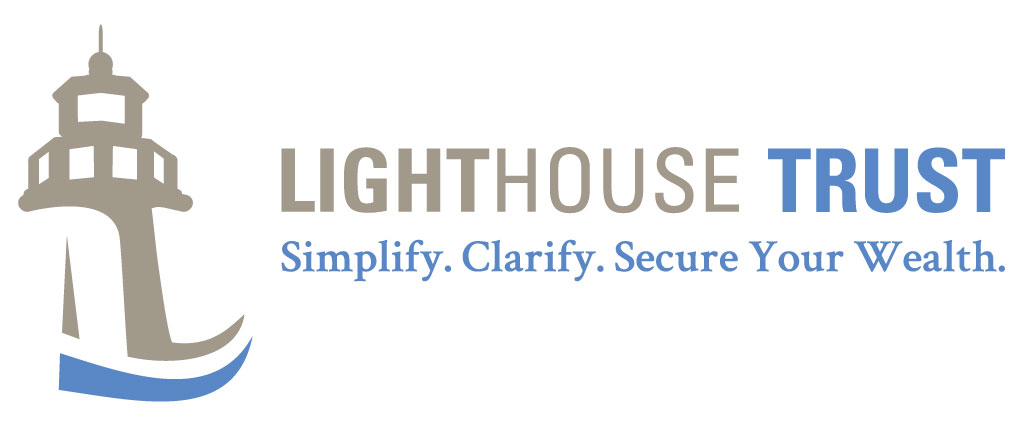Over the past several years, Lighthouse Trust has worked with experienced estate planning lawyers in the United States to offer our “OneTrust” solution to U.S.-resident clients. The OneTrust provides a comprehensive set of benefits:
- An estate planning trust that is excludible for estate tax purposes while providing for the grantor during life
- A family limited partnership or family limited liability company to serve important estate, business, and risk planning objectives
- Dynastic features that permit trust assets to permanently escape estate taxation
- Built-in asset protection features to help ensure that family assets are not subject to the claims of unanticipated creditors
- Family office and wealth management services provided by a suite of experienced professionals, including SEC-registered investment advisors
- Complete tax reporting and FATCA compliance
- Access to a wide range of domestic and international banking institutions
- One simple, annual fee that covers a wide range of included services
IRS Private Letter Ruling
Certain features of the OneTrust solution offered by Lighthouse Trust have been confirmed in an IRS Private Letter Ruling. The essence of the private letter ruling permits trust settlors to fund the trust using their unified credit, retain a discretionary beneficial interest in the trust, and yet ensure that the trust is excludible from the taxable estate. Trust settlors can even use a dynasty trust in this setting to ensure that trust assets remain outside the U.S. Federal estate and gift tax system.
Discounted Gifting with FLP/FLLC
The OneTrust includes, at the option of the clients, a domestic or foreign limited partnership or limited liability company. Transfers in trust or direct to family members of ownership interests in the FLP or FLLC may qualify for valuation discounts when assessed for transfer tax purposes.
A discounted valuation of interests in an FLP or FLLC has the effect of reducing the transfer tax cost of shifting assets to succeeding generations. It also enables older generations to pass along larger sums of wealth at the same effective tax cost. Here are a few examples:
- Discounted Gift: M and D contribute $10 million worth of assets to a FLP. They then assign the bulk of the FLP interests to a dynasty trust established in an asset-protective jurisdiction such as Belize or Nevis. An expert valuation advisor opines that the FLP interests qualify for a 50% valuation discount, meaning that the transfer tax cost of assigning the FLP interests to the trust is $5 million rather than $10 million.
- Discounted Estate: M survives D, holding an estate worth $10 million. M participates in a FLP alongside a dynasty trust, contributing $10 million in exchange for the bulk of the FLP interests; the dynasty trust subscribes to a smaller quantum of FLP interests. An expert valuation advisor opines that the FLP interests qualify for a 50% valuation discount, meaning that the transfer tax cost of holding the FLP interests until death is $5 million rather than $10 million.
Proposed § 2704(b)(4) Regulations
For decades, estate planning attorneys have engaged in discounted transfer planning with their clients utilizing family limited partnerships (“FLPs”) and family limited liability companies (“FLLCs”). In order to maximize valuation discounts within the framework of Code Section 2704(b), a popular strategy has been to extend voting rights (and a consent or veto power over the liquidation of the business entity) to an unrelated party, many times a charitable organization. In Kerr v. Commissioner, 1 292 F.3d 490 (5th Cir. 2002), the Fifth Circuit Court of Appeals upheld the valuation discounts claimed when two charitable organizations were appointed as general partners of a FLP.
Over the past several years, the Treasury Department has floated proposals to update the rules under Code Section 2704 to curb the outcome in cases such as Kerr v. Commissioner. The crux of these proposals has been to expand the scope of restrictions that may be disregarded when transferring interests in a family-controlled entity.
More recently, it is understood that Treasury has given up on asking Congress to amend Code Section 2704, and that Treasury intends to issue regulations under the incredibly broad grant of authority of Code Section 2704(b)(4) by the end of 2015 to accomplish what Congress is not willing to explicitly permit. One commentator has even suggested that an active business test similar to that contained in Code Section 6166 might be incorporated into the regulations.
OneTrust Unaffected by Current Proposals
A key benefit of the OneTrust from Lighthouse is that the restrictions factoring into valuation discounts of FLP or FLLC interests under the OneTrust program should remain unaffected by current Treasury proposals. The reason for this is that Code Section 2704(b) itself generally does not apply to FLPs or FLLCs that are integral to the OneTrust.
Estate planning is an important investment in and of itself, and yet it can be an expensive undertaking for any client. The statutory approach to wealth planning under the OneTrust ensures that the design and integrity of the client’s estate plan continues without interference and free of any changes in regulations likely to emerge in the coming months.
If you are a licensed attorney engaged in estate or asset protection planning for your clients, and you are interested in learning how the OneTrust can augment your existing practice, please provide your contact details or call us.
